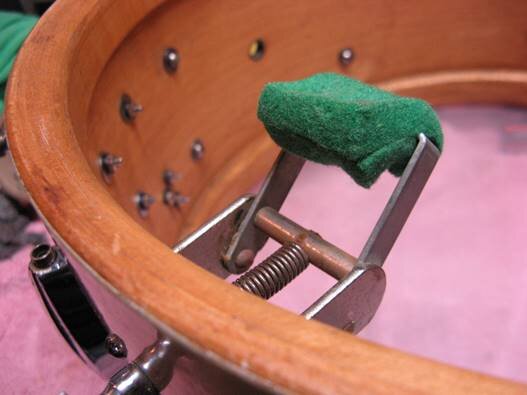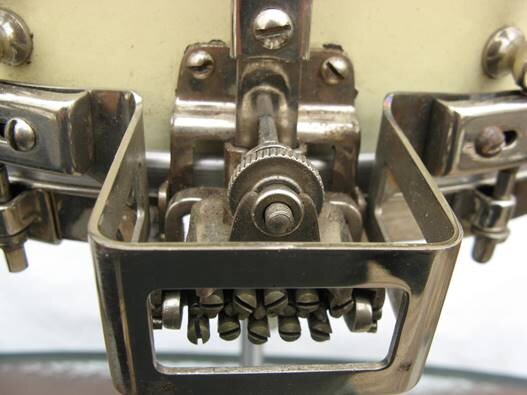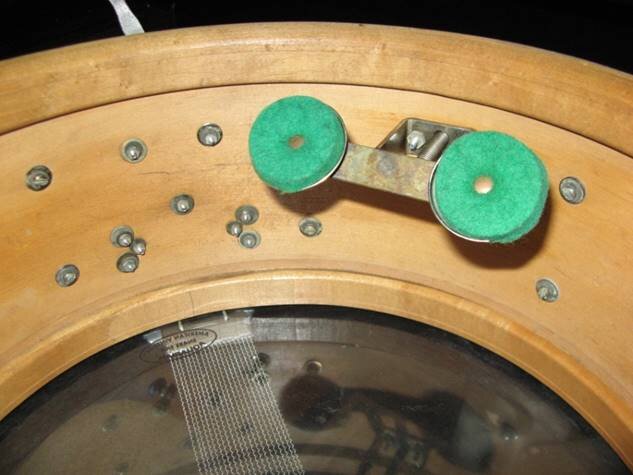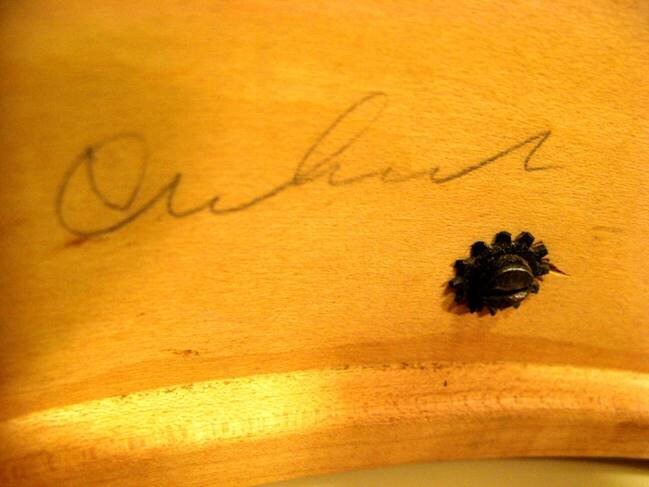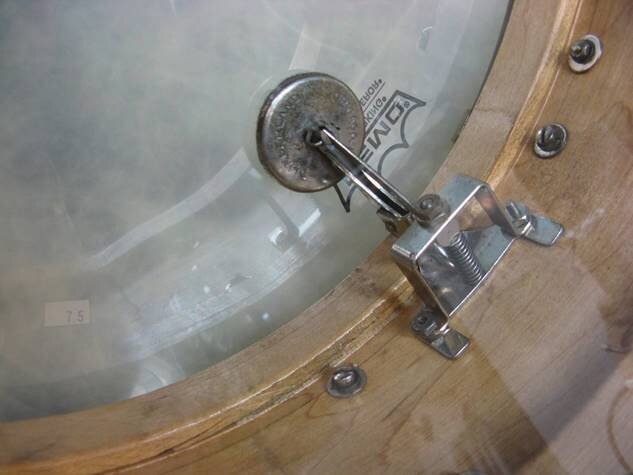A GUIDE TO VINTAGE DRUMS
(An “unofficial” guide to vintage drum identification)
1923-1965
By Mark Cooper
If you have ever found yourself looking at an old vintage drum and wondering, “What year was this made?”, or “When did they first use this type of snare strainer?”, or “What’s the name of this unusual finish?”, then this vintage drum guide may be of interest to you. The purpose of this guide is to help identify the various types, models, and features of vintage drums during the years 1923 to 1965. I consider this period to be the “golden age” of American drum manufacturing. This article applies mainly to the three major U.S. drum companies that operated during period. While there were several other important drum companies operating at that time, I have chosen Leedy, Slingerland and Ludwig & Ludwig as the main focus, although others will be mentioned when necessary.
For more information on the history of the Slingerland Drum Company, please see the “Slingerland History” section of this web site: SLINGERLAND HISTORY
This guide will look at the various types of drum hardware such as, strainers, lugs, hoops, accessories, and other identifying features. Vintage drum finishes will also be discussed.
While I have made every effort to be as accurate as possible, there are many “gray” areas when it comes to attaching exact dates to the many different vintage drum components. Drum companies were notorious for using older parts on newer drum shells, out of date catalog photos, making the job of the modern day drum historian quite a challenge. I apologize in advance for any mistakes or inaccuracies or misinformation that may appear here. If you see something that is incorrect, please let me know.
I have been collecting, playing, studying, and living with vintage drums for over thirty years and during that time, I have seen quite a few interesting and rare instruments. Over the years, I have read every book or magazine article I could get my hands on that concerned old drums. I have spent countless hours perusing old drum catalogs and literature, as well as repairing and restoring hundreds of vintage drums. From these experiences I have attempted to compile the contents of this very unofficial vintage drum guide. Some of the information presented here concerning dates, model names, evolution of drum hardware and the like may be speculation or guesswork at times, as there are always difficulties when trying to interpret historical data. Even after three decades devoted to vintage drums and their history, I am still learning something new almost every day. This Guide to Vintage Drums is a work in progress and from time to time, I will be adding to it or correcting it. As I said….I am still learning!
From the first time I removed a drum head from an old Slingerland Radio King snare drum and gazed in wonder at the beautiful wooden shell, smelled the intoxicating aroma of the old growth American maple wood and glue, tinkered with a rusty strainer, or attempted to decipher the mysterious pencil markings written inside, I knew my association with the world of vintage drums would be a long and exciting one. I hope you enjoy viewing this drum guide as much as I have enjoyed putting it together!
SPECIAL THANKS!
I would like to thank my good friends and collectors, Dave Brown, Mike Curotto, and Dave Zima for the use of their photos. Thanks also to Rob Cook for his devotion to vintage drum history, his excellent drum history books, and for running the great Chicago Drum Show every year. And special thanks to my friend and mentor, drum historian and author Harry Cangany. Many times over the years Mr. Cangany has taken the time to patiently answer my questions concerning drums and their history. His numerous magazine articles, newsletters, books, and the DCI Forum have played a huge role in my vintage drum education.
Also, thanks to Jim Messina for his passion for vintage drum collecting and for his wonderful videos.
~CONTENTS~
LUGS:
STRAINERS:
DRUM FINISHES
MISCELLANEOUS



